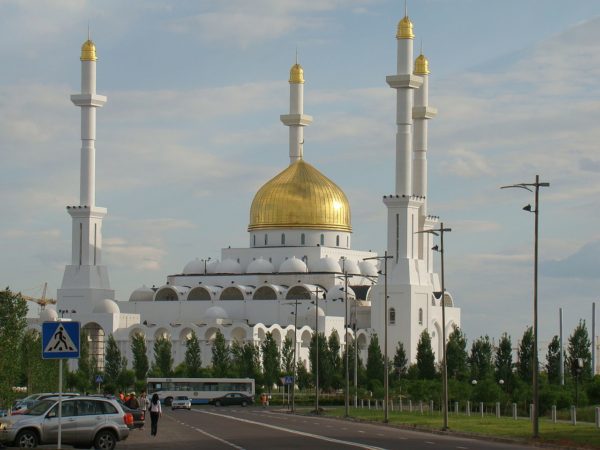Lessons from the Kazakhstan Riots
Yaroslav Lavrentievich Podvolotskiy, American Renaissance, February 9, 2022
All the news out of Russia is about its alleged designs on Ukraine. Whatever the likelihood of Russia trying to incorporate new territory, it should think about the risks of diversity. A good place to start would be to ask why it has a political and economic union with Kazakhstan — and with the other members of the Eurasian Economic Union (EAEU). If any country should understand the dangers of diversity, surely it should be what is left of the old Soviet multi-national empire.
By forming what is essentially a customs union and military alliance with Kazakhstan, Russia has made Kazakh social and political problems its own problems. Recent events showed that Kazakhstan’s citizens are willing to riot to get what they want. A country where people riot easily is unstable, and is a liability to whoever has authority over it.
Kazakhstan has deeper problems than citizens dissatisfied with what they view as a kleptocratic elite. Kazakhstan is a multi-ethnic nation — if one can even call it a nation. Only 68.5 percent of the population are Muslim Kazakhs. White and Christian Russians and Ukrainians are the largest minorities, followed by Germans, Uighurs, Poles, Tajiks, and dozens of other nationalities and ethnicities.

The Nur-Astana Mosque in Nur-Sultan, Kazakhstan.
Multi-ethnic and religious societies are unstable, and Kazakhstan’s history since 1991 shows this. The Novozenskaya Massacre in June 1989 and the Ust-Kamenogorsk riots in 1992 saw clashes between Uzbeks and Caucasians, resulting in death tolls ranging from dozens to hundreds. In 2020, there were clashes between Dungans and Kazakhs in the Korday district in the South, resulting in 11 dead and hundreds injured; the army had to restore order. These are just a few of the dozens of incidents that add color to multi-racial and -ethnic life in Kazakhstan.
Diversity in Kazakhstan can lead to absurdity. In one town, a group of drunken Armenians and Kazakhs at a New Year’s party got into a brawl, and a Kazakh was stabbed. Kazakhs protested. One group of Kazakhs barged into a café called Café Baku, thinking Baku was the capital of Armenia (it’s the capital of Azerbaijan), and harassed a manager and a waitress. Never say Americans are the world’s sole geographically challenged people.
Recently, Russians got a taste of what it means to be wedded to such a country when Almaty’s residents started tearing down their own city, and the Russian-led Collective Security Treaty Organization (CSTO) had to send troops to prevent multi-racial civil war. Things could get worse. Russia might have to send more than a peacekeeping force.
Other EAEU and CSTO members have similar problems. In Tajikistan, there was civil war in the ’90s partly fueled by clan and ethnic rivalries. Christian Armenia recently fought a war with Muslim Azerbaijan over their disputed border.
If any of these countries descend into civil war or war with their neighbors, Russia could be flooded with millions of Muslim and Caucasian refugees. Considering the problems Russia has with its own national minorities, most notably the Chechens, an influx of millions more Muslims and people from the Caucasus would mean more problems.
Even if there is no large-scale violence, economic unification of Russia with Central Asia and the Caucasus will probably move toward political unification, as happened in Bismarck’s Germany and now in the European Union. Political unification means the free flow of people, and millions of Kazakhs, Tajiks, Armenians, and who knows who else would stream to Russia for its higher standard of living. Russia is already one of the world’s number-two destinations for immigrants after the United States.
Russia has below-replacement fertility and many Russians who want to leave. Opening the doors to high-fertility Muslims would be a disaster. If President Vladimir Putin is a nationalist, as his supporters claim, he should keep clear of Central Asia and the Caucasus and concentrate on solving Russia’s demographic problem.
If the Russians want permanent economic and security arrangements, let them be with the West, not with radically dissimilar peoples. Pro-Russian Ukrainians in Donbas, Crimea, and other Russian-speaking regions of Ukraine and the European regions of the former Soviet Union should consider all this when they flirt with the idea of re-joining Russia.















